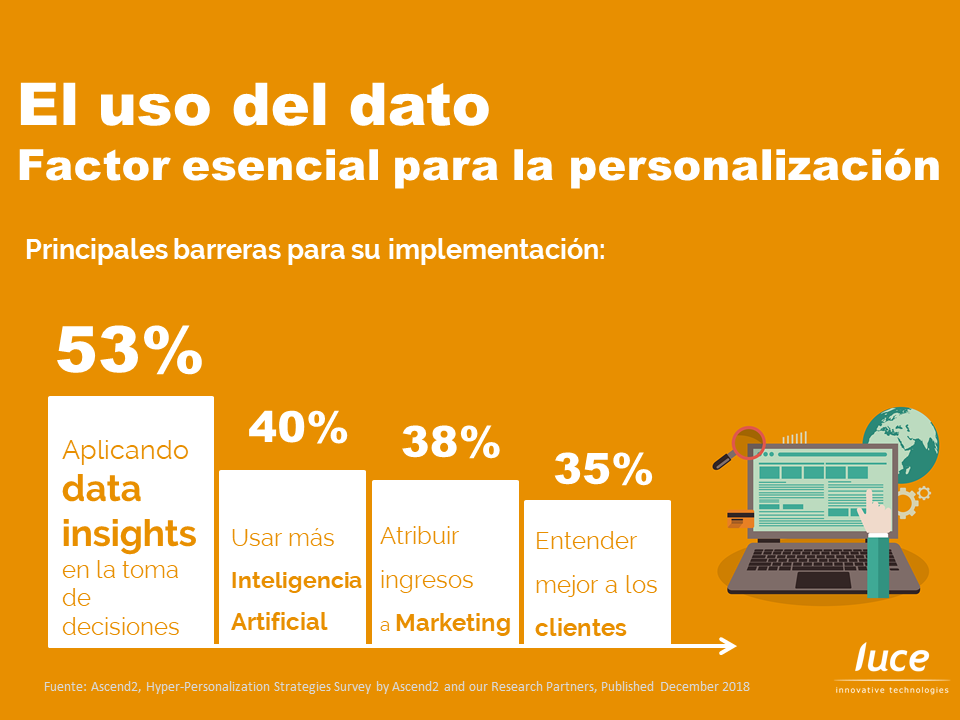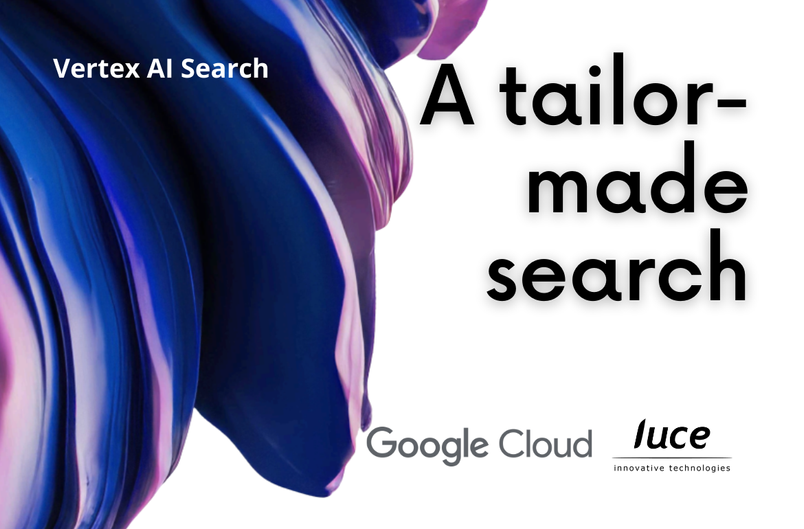
How to improve the relationship with your customers through personalisation and AI
It is no secret that our customers today have access to a huge amount of information and a very wide range of products and services, which gives them a great capacity to change and select products and brands with little effort. In this context in which the customer is more demanding with brands, and also has the possibility of sharing their experiences very easily, a very important transformation is generated in the interactions throughout the customer journey: Our customers are no longer simple consumers but become brand critics and generators of opinion..

Benefits and Business Impact
The current situation confronts us with an uncertain futurewhere excellence in relationship with our customers is of critical importance. The experience of our users will determine our ability to attract new customers in an efficient manner, and will be fundamental to retaining the ones we already serve. The fact that retaining a customer costs five times less than acquiring a new one, and that increasing our retention rate by +2% is equivalent to improving our costs by 10%, seem like compelling reasons to consider improving the customer experience and improving our retention rate in our strategic plans. Don’t they??
User demand
The connection between the loyaltyof our customersand brand marketing is a personalised customer experience. Not only are customers aware that brands track user behaviour, but more than 60% want it to be used to receive offers of interest to them and 86% are even willing to pay morefor such an experience..
Now more than ever, it is necessary to move away from transactional thinking and create an omni-channel experiential relationship, oriented towards the long term and positive endorsement in the marketplace..
Challenges of building a holistic view of the customer
The degree of customer understandingthat enables personalisation of the one-to-one relationship requires transformations in the organisation and its technological ecosystem..
Achieving the necessary degree of customer insight to be able to provide personalisation tailored to each user, homogeneous and consistent across different channels requires exploiting multiple sources and types of data. We are probably already familiar with some of the challenges that this implies.
In the best case scenario, the necessary data is not even being collected, losing valuable knowledge for the implementation of future customisations. In other, worse cases, the data exists but is distributed in silos across the organisation. As a consequence of this poor information management policy, there is no clear picture of what information is available, no information quality controls, and there may even be security issues due to lack of corporate access control and auditing. .
Exploiting this informationbecomes extremely complicated and prevents the different teams from relying on the data for decision-making, generating insights and acting on them to improve their business results. To try to manage all this information, the silos of organisations use different tools such as CRM, data warehouses, marketing automation solutions or CDP. All of them are valid and indeed provide some level of support, although it is partial and focused on a purpose very specific. .
Data Lake and Artificial Intelligence
There is therefore a need to deploy new technological capabilities that support the development of a data-driven mindset of the organisation, and allow to efficiently manage not only information from these partial systems in a coordinated and unified way, but also real-time information about the context and user behaviour at any given moment. All this togetherwill enable the implementation of new strategies that deliver the right message at the right time through the right channel.
Only through these capabilities is it possible to extend a single, comprehensive viewof the customer across the organisation and its operations. Without such a common vision it will be impossible to define a differentiated omni-channel customer experience.
Conclusion
Many organisations have embarked on the journey of deploying these data initiatives to unify and enrich existing information, as well as simplify access to it to generate and drive insights from across the organisation. Some analysts indicate that more than 80% of these tens of thousands of euros projects do not achieve a successful deployment. The reasons are clear. The success of the project lies in properly connecting the business and IT areas through the selection of the right technology and an agile deployment oriented to impact on business results.
When this is achieved, the activation and exploitation of data through artificial intelligence, machine learning and other martech advances opens up a new universe of applications and scenarios such as hyper personalisation and behavioural prediction that enable new ways to delight our demanding customers in every interaction.
If you need more information without obligation, do not hesitate to contact the Luce team.
Posted By: LuceTeam
About Luce
What we do : Luce is a company with extensive experience in successfully executing projects to transform data-led and user-centric business models through the use of innovative, usable and accountable technologies. If you are thinking of embarking on a new digital project and want to maximise your guarantees of success, do not hesitate to contact us with no obligation.









